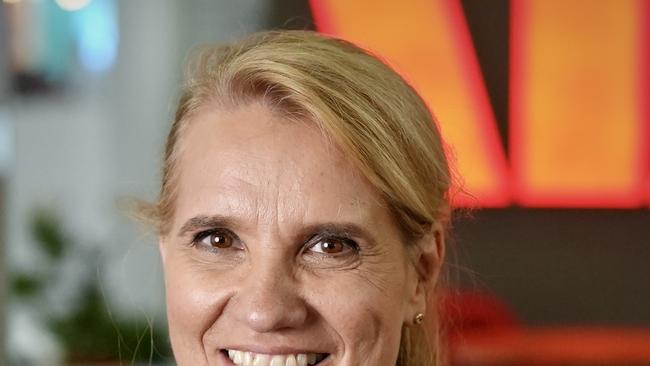Why we need to teach money skills in school … urgently
A remarkable story from a bank branch in Sydney tells us much about the need for financial literacy in schools.

Marlena Karbowski was working one day recently in the Liverpool, Sydney, branch of Westpac when a woman came to the counter seeking to cancel her home insurance.
Karbowski has been working in bank branches for decades: She knew from experience that someone cancelling their home insurance has bigger plans.
And, as it turned out, this customer had her $2m home up for sale.
As a veteran banker, Karbowski detected that something was not quite right. The woman had no plan to buy another home.
Instead, her plan to cash out her home had been prompted by a need to help someone she knew.
As Karbowski explains: “Sometimes when you ask questions at the counter, people can be a little offended – they say ‘it’s my money’ – but we need to do it.”
Karbowski probed further, and the story started to fall apart. After 45 minutes with the customer, it transpired the woman wanted to transfer money to an unfortunate prisoner in Turkey that she had never met.
A quick call to the Turkish embassy only drew further questions, whether the “prisoner” and his story might all be a scam.
An online image search of the perpetrator found him to be dotted across the internet in a variety of suspicious circumstances.
At that point, Karbowski agreed to walk with the now visibly shaken customer up the street to the Liverpool police station to make sure the crime was reported.
“This sort of thing used to be so rare – once or twice a month we had scam situations in the branch, now we are reporting incidents daily,” Karbowski suggests.
How many people out there have absolutely no clue about money? And why does it continue to happen?
Sure, there’s a sucker born every minute, and the stories are not always so spectacular as the Turkish prisoner scam.
But according to a University of Western Australia report, almost half the population simply don’t have money skills: 45 per cent of the population – 8.5 million people – do not understand at least three basic finance concepts: interest rates, inflation and diversification.
A financial literacy emergency.
Consider this: What did you learn about money in school? Unless you did maths or business subjects, no doubt it was very little.
Paradoxically, the issue is that most people don’t do those subjects – and they are the very people who will take their super out for a Gold Coast off-the-plan apartment development or an “invitation only” crypto fund or, for that matter, a non-existent prisoner in Turkey.
And this is just the pointy end of the problem: More commonly, people don’t know what the Superannuation Guarantee Charge is, even though it is legally compulsory that they hand over more than a dollar in ten to their super fund.
Some don’t know what a mortgage is, and many don’t know what a mortgage offset is.
If you don’t know the answers to these questions, the chances are that the people who do know will run circles around you.
In fact, financial literacy standards are declining across all age groups, and there are a litany of surveys to show this. The compelling evidence comes from the benchmark HILDA survey – the bible of social statistics, produced by Melbourne University with the Melbourne Institute. Younger people perform weakest here. In 2016 younger respondents scored 1.3 out of 5 on financial literacy – in 2020 the score fell to 1 in 5.
As Caroline Stewart, the chief executive of the Ecstra Foundation (a non-profit group), says: “Declining financial literacy levels require immediate focus from the government.”
As the understanding of all things financial slides across society, the other big problem is that the subject has fallen between the stools inside government.
One of the most important initiatives for driving change in government has been the National Financial Capability Strategy, which used to be run by the consumer regulator ASIC. In recent times this unit was transferred to the Treasury and little has been heard of it since.
The Ecstra Foundation politely puts it this way: “We recommend the government reactivate the National Financial Capability Strategy.”
Looking across this year’s budget submissions from financial literacy advocates including Ecstra and the Your Financial Wellness group, there are several outstanding ideas:
● Make financial literacy a core stand-alone compulsory learning area in the school curriculum.
● Force the Treasury to dust off the National Financial Capability Strategy to provide funding for developing financial literacy.
● Get the Productivity Commission involved with an investigation into the importance of financial literacy – A rigorous investigation of the failings and opportunity in this area would represent real progress.
Think about it: How did fraudster Melissa Caddick fool so many people? How come the incidence of rogue advice and successful scams are going through the roof?
The Karbowski story tells us a few things – not least that bank branches with experienced staff who have initiative will never be replaced by digital services.
What did Karbowski learn about money in school? “Nothing much.”
Does she think financial literacy should now be compulsory in the school curriculum?
“Absolutely.”
James Kirby hosts the twice-weekly Money Puzzle podcast.






To join the conversation, please log in. Don't have an account? Register
Join the conversation, you are commenting as Logout